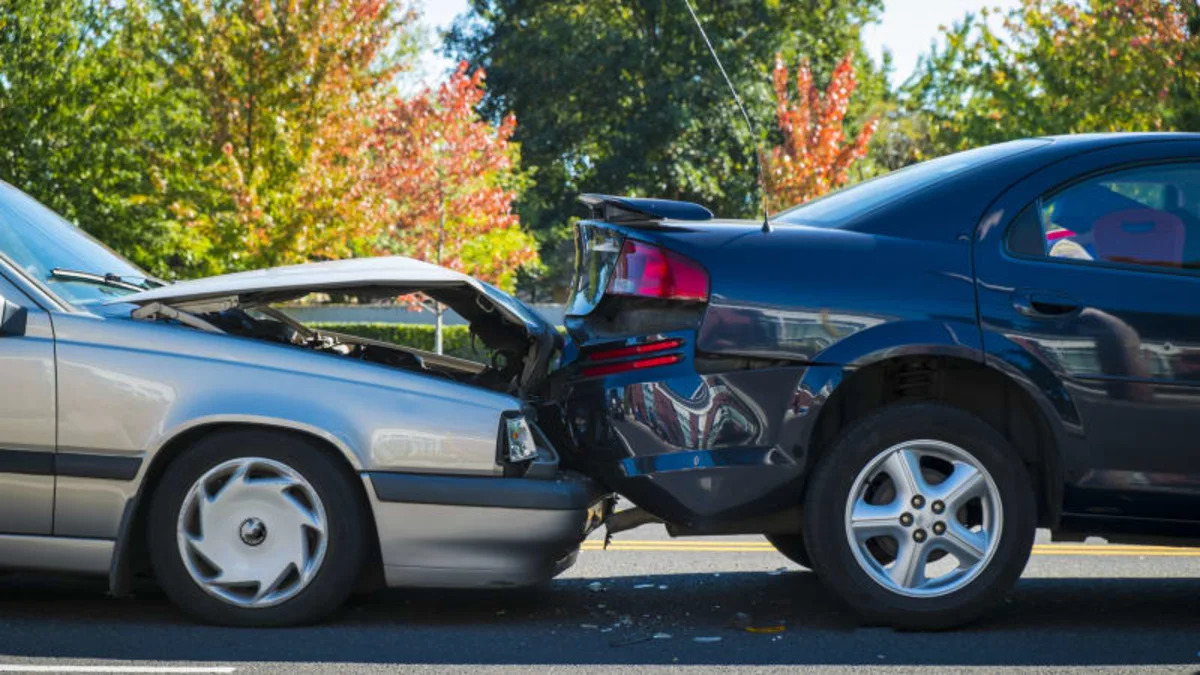According to the National Highway Traffic Safety Administration, there were 6.1 million traffic crashes reported to the police in 2014. That means two or more vehicles crash with each other somewhere in the U.S. multiple times every minute - and even more if you take unreported accidents into account. Count your blessings if you've never been involved in a fender bender, and keep these best practices in mind if the day ever comes when you have an accident.
Don't leave the scene
Don't panic and leave the area. Even if it appears that nobody is hurt, stay at the accident scene. In some cases, you could face criminal charges if the situation turns out to be worse than you think.
Leave your vehicle where it is and try to convince the other driver to do the same, unless either of the cars are obstructing traffic. If this is the case, move them to the side of the road. If that's not possible, turn on your blinkers to warn oncoming traffic that there's a problem.
Call the police
Call the police immediately. The dispatcher will tell you if the authorities don't feel they need to send someone out, but this is rare. Ask for a police or incident report when the officer arrives - you'll almost certainly need this for your insurance company if your vehicle sustained any damage. It's a good idea to make a note of the officer's name and badge number so you can follow up later, if necessary.
Exchange information
Remember that old childhood rule that you shouldn't speak unless spoken to. You might not want to take it quite that far, but saying less is always better than saying more when conversation begins, either with the other drivers or with the police. Stick to the facts. Don't apologize or make any other statement that might convey that you did something to cause the accident, even if you did.
Of course, you'll have to be proactive in some ways, particularly before the police arrive. Ask for the other driver's name, contact information, insurance company name, and policy number - and be prepared to give yours. Get contact information, such as phone numbers and emails, from passengers or witnesses. Take pictures of the scene with your cell phone, or at least jot down license plate numbers.
Contact your insurance company
Reach out to your insurance company as soon as you get home. Some insurers require immediate notification.
Your insurance company will probably want a copy of the accident report when you get it, so everything you say should be corroborated by that report. If you were at fault, you can and should admit it now, but only to your insurance representative. Honesty is the best policy when you're about to make a claim.
Your insurer will send an adjuster to examine your car if it's been damaged, or it may ask you to take the vehicle to one of its inspection sites. If you're not happy with the adjuster's verdict, you can have your own appraisal done so you can negotiate in a dispute.
Be cautious
The unfortunate reality is that not everyone is scrupulously honest. The other driver's minor injuries at the scene may suddenly become "life-threatening" later. Your injuries might be more serious than you initially thought, and the other insurance company might want to nip that potential problem in the bud. So don't talk about the accident with anyone other than your own insurance company.
If the other insurer contacts you, ask the representative to call your insurance company instead. Don't be too quick to accept an early settlement offer. It's usually suspect if it comes out of the blue, right away.
Keep a "car accident" file. Even if you think something isn't important - like the receipt for bandages you bought for the cut on your forehead - it's always better to have it and not need it than vice versa.


Sign in to post
Please sign in to leave a comment.
Continue